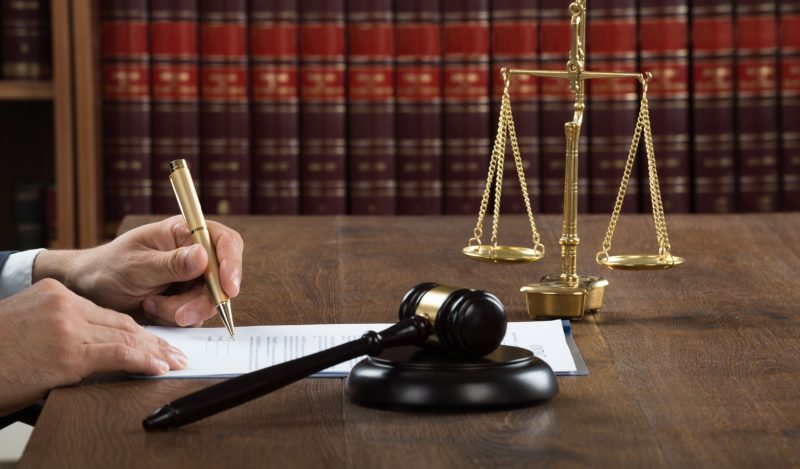Chief Justice John Roberts once flipped his vote on Obamacare to appease the DC establishment. Will he capitulate again in Murthy v. Missouri?
In 2012, after oral arguments in Sebelius v. NFIB, the Supreme Court met in a secret conference to determine the constitutionality of Obamacare and its “individual mandate.” Following three days of oral arguments, hundreds of pages in briefing, and hours in chambers with clerks and fellow Justices, Roberts provided the critical fifth vote to create a majority holding that the Affordable Care Act was unconstitutional.
But the arguments did not cease when the Court adjourned, and the Chief soon dithered under public scrutiny.
Three days after oral arguments, President Obama spoke from the Rose Garden to pressure the Court to uphold his signature legislation. Senator Patrick Leahy, then Chair of the Judiciary Committee, addressed Roberts on the Senate floor weeks later. “I trust [Roberts] will be a Chief Justice for all of us and that he has a strong sense of the proper role of the Judicial Branch.” Newspapers and cable news anchors warned Roberts that if he voted with the majority “his ambition of transcending politics on the Supreme Court will have to be judged a failure.”
The Wall Street Journal took note of this in its column “Targeting John Roberts: the left tries to intimidate the High Court on Obamacare” arguing “We doubt the High Court will be intimidated by any of this, and…no Justice would be worthy to sit on the Court if he is…The Court’s reputation will be tarnished if it bows to the political distemper of the moment, not if it follows the Constitution.” But the editorial staff was wrong.
Chief Justice Roberts flipped his vote in response to the public pressure. CBS reported that “Roberts switched views to uphold health care laws,” writing “Roberts pays attention to media coverage. As Chief Justice, he is keenly aware of his leadership role on the court, and he also is sensitive to how the court is perceived by the public.”
Supporters and critics agreed that Roberts’ decision was a political calculation rather than a legal determination. In the New York Times, Ross Douthat authored “John Roberts’s Political Decision,” writing that Obamacare was “saved by political considerations.” At National Review, Jonah Goldberg noted, “No one is confident, never mind certain, that Roberts actually believes his own position.”
Now, the Court faces another Democratic president’s unprecedented expansion of federal power in Murthy v. Missouri (formerly known as Missouri v. Biden). Like the Obamacare case, decided in 2012, the decision comes in an election year and features the heavy-handed influence of the medical industry’s lobbying and public pressure campaigns.
On Monday, the Court will hear oral arguments in the case, and the Justices will confront the most pervasive forces in American society: the private-public censorship industry, the influence of the Intelligence Community, and the Biden Administration’s repeated attacks on free expression.
The argument comes just two weeks after President Biden’s targeting of the Court in his State of the Union address and amidst the regime’s demonstrated antipathy for the separation of powers.
The case will almost certainly become the Roberts Court’s seminal decision on the First Amendment, but it may also be the definitive judicial review of the Covid response.
With more than a decade passed since Roberts’s cave to public pressure in Sebelius, one question facing the Court is whether time has restored the Chief’s vertebraes. His response to Covid tyranny, however, indicates that it has not.
May 2020: The Chief Invents a Pandemic Exception to the Constitution
Just two months into the Covid response, the Supreme Court had the opportunity to rebut the government’s tarnishment of the Bill of Rights. The Justices could affirm that our Constitution has no pandemic exception, and cloaks of benevolent phrasing cannot warrant the usurpation of our liberties.
Instead, Chief Justice Roberts suspended the Constitution in deference to “experts,” thus ushering in three years of emergency orders from charlatans and petty tyrants. It proved a turning point in the Covid response, acting as a green light for prolonged church closings, First Amendment violations, and turnkey totalitarianism.
In May 2020, a California church petitioned the Supreme Court to overturn Governor Gavin Newsom’s restrictions on church attendance. The “fog of war” is no excuse for “violating fundamental constitutional rights,” they argued.
Newsom’s order limited attendance at religious ceremonies to 25% capacity with a maximum of 100 attendees, no matter the size of the venue. The State offered no “justification for this arbitrary cap,” the church explained. Retail stores were permitted to hold 50% capacity at the time, and offices, food packaging, museums, and and “every other sector [had] no percentage cap.”
Four members of the Court were able to see through the state’s flimsy pretext of “public health.” Justice Kavanaugh asked, “Assuming all of the same precautions are taken, why can someone safely walk down a grocery store aisle but not a pew? And why can someone safely interact with a brave deliverywoman but not with a stoic minister?” Justices Gorsuch, Alito, and Thomas joined Kavanaugh in voting to grant the church’s motion.
The liberal wing of the court – Justices Kagan, Ginsburg, Sotomayor, and Breyer – voted to deny the motion without offering any opinion to support their vote.
The critical fifth vote thus came to the Chief Justice. Roberts sided with Governor Newsom, arguing that the Court should defer to “experts” because the “unelected judiciary lacks the background, competence, and expertise to assess public health and is not accountable to the people.”
Of course, every tyrant has claimed “competence” to control the lives of his subjects. Our Constitution, however, is designed to restrain all men, regardless of self-proclaimed insight, genius, or title, from abridging the rights of citizens.
The Chief’s fifth vote ignored constitutional text in favor of an imaginary pandemic exception to the Bill of Rights. As the head of the judicial branch, his deciding vote suspended judicial review as lockdowns obliterated Americans’ liberty.
The Chief Justice continued his deference to “experts” for over a year despite their demonstrable failures. Two months after the California decision, he again provided the fifth vote to uphold Nevada’s limit of religious gatherings to 50 people, despite the order permitting casinos to hold up to 500 gamblers at a time. Justice Gorsuch explained in dissent: “the First Amendment prohibits such obvious discrimination against the exercise of religion. The world we inhabit today, with a pandemic upon us, poses unusual challenges. But there is no world in which the Constitution permits Nevada to favor Caesars Palace over Calvary Chapel.”
The death of Justice Ginsburg and the confirmation of Justice Barrett to the Court flipped the 5-4 split, but Chief Justice Roberts continued his pandemic-exception jurisprudence into 2021. In February 2021, he upheld California’s banning on singing in church, explaining that “federal courts owe significant deference to politically accountable officials with the background, competence, and expertise to assess public health.”
In April 2021, he voted to deny Californians’ petition to challenge Governor Newsom’s edict limiting in-home religious gatherings to three households. Justice Barrett, however, overrode his dissent, and the Court restored the petitioners’ First Amendment freedoms.
Unclouding the Fog of War
The Chief Justice has a penchant to capitulate to political pressure. Murthy v. Missouri features perhaps the most powerful and united hegemon that the Court has ever encountered.
Let us hope that the Chief no longer allows the fog of war or fear of political blowback to excuse the deliberate and repeated violations of fundamental constitutional rights.
Alexander Hamilton noted in Federalist, No. 78, “whenever a particular statute contravenes the Constitution, it will be the duty of the judicial tribunals to adhere to the latter and disregard the former.”
It is not just the Court’s power to remedy usurpations of our liberty, but it is its duty. The Chief has been derelict in the past, deferring to the capricious whims of political opportunists, but Murthy v. Missouri offers the Chief an opportunity to reaffirm his Court’s commitment to the Constitution.
Published under a Creative Commons Attribution 4.0 International License
For reprints, please set the canonical link back to the original Brownstone Institute Article and Author.



